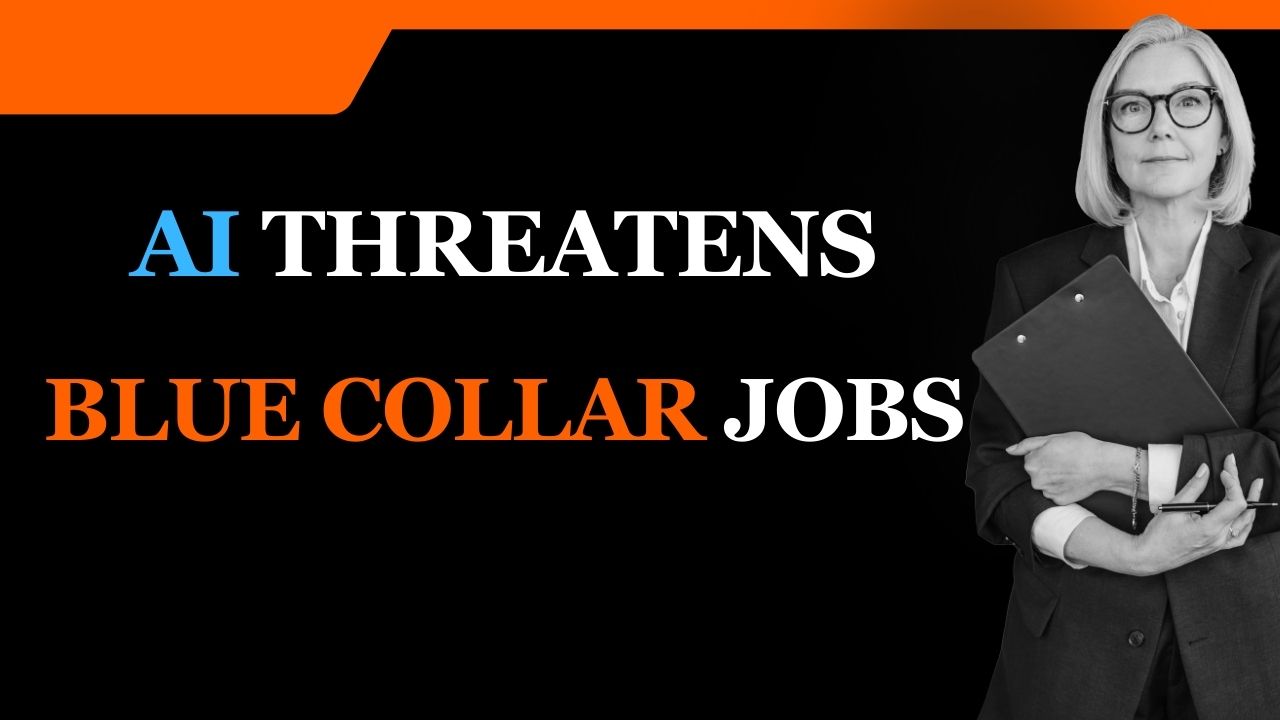AI Threatens Blue Collar Jobs
Generative artificial intelligence (Gen AI) is sweeping across industries. While it is perceived as a significant risk to a huge number of white-collar employees, the rapid advancement of technology in the industrial business demonstrates that blue-collar workers are also at risk of being replaced by machines. Gen AI is referred to as “Gen AI.”
Know about how AI Threatens Blue Collar Jobs
AI is rapidly speeding up the fourth industrial revolution, according to Ed Watal, founder and principal of IT strategy consultancy Intellibus.
Manufacturing is already being revolutionized through automation, predictive maintenance, and quality control that is transforming operations.
Watal points out that over the past few years, smart transport robots (STRs) and automated guided vehicles (AGVs) in warehouses and factories have already started eliminating tasks like operating forklifts.
However, with the advent of general artificial intelligence (Gen AI), technology can handle other, more complex operations that humans currently handle.
How to Become a Computer Support Specialist
How to Become a Computer Hardware Engineer
According to him, Gen AI models can serve as a “digital twin” for a production line or plant, and they can either be used in production or merely to run simulations without the requirement for a line to be shut down or for a costly pilot plant to be operated.
“As Gen AI gets applied to computer vision and becomes more multi-modal, allowing people to upload an image or video and ask questions about it, more blue-collar jobs will be at risk,” Watal told reporters on FOX Business.
“Such capabilities will drastically reduce the need for multiple ‘experienced’ workers, as their knowledge and expertise gets captured in their ‘digital supervisor twin’,” stated the researcher.
“A single digital supervisor twin may be able to support all maintenance or quality engineers for a given production line or factory.”
This transformation brought on by Gen AI will have a huge impact on blue-collar occupations and jobs requiring physical labor.
Still, it will also have an impact on white-collar jobs and positions requiring knowledge workers in manufacturing.
“AI-powered quality tools today can already deliver ongoing monitoring, generate alerts for issues and use them to make changes that would optimize production yield, significantly reducing the need for multiple quality assurance jobs,” Watal further stated.
He cited an analysis conducted by Goldman Sachs earlier this year, which suggested that developments in General Artificial Intelligence might put up to 300,000,000 million jobs at risk owing to automation all across the world. He also stated that manufacturing companies have already become early adopters of AI.
Investment Banker | Chartered Accountant | IT Manager | Dentist | Software Architect
According to Watal, artificial intelligence can also be regarded as a tool that enables bridging the gap caused by the persistent labor deficit in the country.
This is one side of the coin. He noted the most recent quarterly poll conducted by the National Association of Manufacturers, which revealed that 72 percent of manufacturers reported that their top primary concern was an inability to attract and retain people.
According to Watal, as more labor unions representing blue-collar workers become aware of the influence of AI, the technology will progressively become a sticking point in contract negotiations, just as it did in this year’s Hollywood actors and writers strikes.
Watal said this will happen because blue-collar workers are more likely to be affected by AI than white-collar ones.







